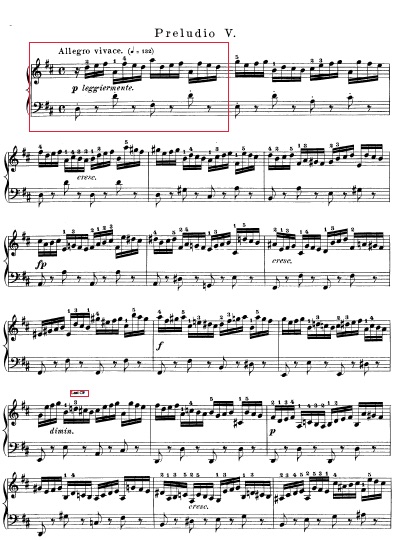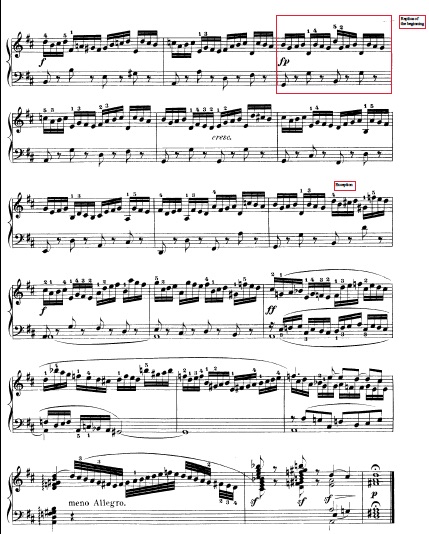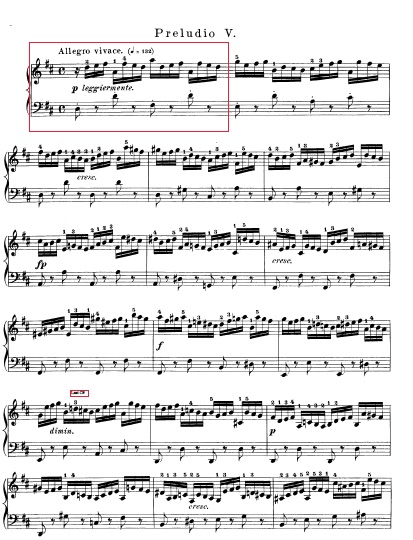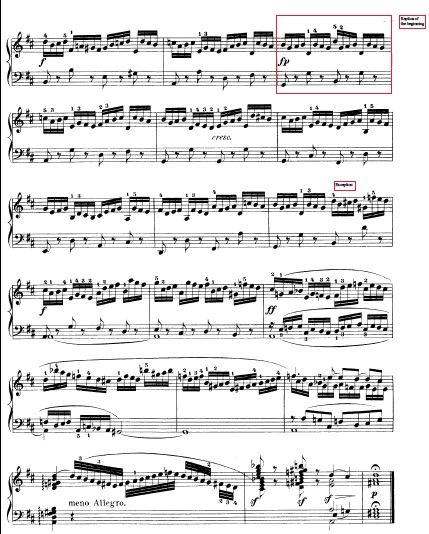為甚麼學琴?現在在香港考名校,鋼琴已經不算是樂器; 彈琴八級,遍地都是;香港人多蝸居,一部鋼琴可以佔去家中很多空間。為甚麼不去學let’s say 伸縮號: 考名校有用;比較冷門;樂器又细一點。
說到這裏,大家會聯想起一些耳熟能詳的答案:”學琴對明嘹樂理有益”,”幫助手腳協調”等等。這些全是對的,但我在這裏分享一下自己的想法。
學琴時要處理的數據其實頗龐大: 雙手各一行,一行內可以有多過一個聲部,腳有踏版要照顧。以今年2019 年校際音樂節八級U/E/W 128級別比賽歌Bach Prelude andFugue in D, BWV 850為例子: 比賽一定要背,但首Prelude 如何不會背錯?右手好像全部差不多…. 在這裏我會嘗試以Data Processing 的角度去解決問題。Data Processing 面對似以雜亂無章的Input Data 時,首先要做Pattern Recognition,就好像要記1, 3, 6, 10, 15, 21, 28: 不是盲目死記這些數字,而是要記數字間的距離每次加一。回到首Bach Prelude, 我在第十二小節上寫了”Last C#”,因為往後所有C 也是natural (除了從最後數回來第十小節有一個C#);又另一例子: 從最後數回來第十六個小節是第一小節的exact replica (連左手也相同),只不過開始時是D,個Replica 是G。如是者,大家可見到看鋼琴和練習腦筋的關係。
作為一個鋼琴老師,能夠從音樂中訓練學生problem solving 的能力,其實也對我自己腦筋有莫大俾益。再者,其實很多人考完八級就不再接觸鋼琴,能夠發展學生一些一生受用的life skills,是很有滿足感的!
最後,我想同大家分享一下我演奏這首Bach的YouTube。


[English Version]
Why learn piano in Hong Kong? The effort involved seems futile in many aspects: first, it will not give your children an edge in their high school applications since piano is nowadays considered a “commonplace instrument”; “grade eight piano players” are so ubiquitous that being one of them hardly impress anyone these days; piano takes up valuable living space in Hong Kong, all the more given the meagre size, in general, of the apartments here. Why not go learn, let’s say, trombone? All those prestigious schools need trombone players in their orchestras; “trombone players” are valorized more in general; not least, the instrument is smaller. What is so good about learning piano?
Up to this point, familiar answers may ring in your ears: “learning piano helps the understanding of music theory”, “it helps hand-feet coordination” etc. All these claims are correct, yet I would like to give “my two cents” here.
Learning piano actually involves processing, at times, a formidable amount of data: each hand has its own stave which sometimes can contain more than one line therein; and don’t forget the pedal! Let me use the Prelude and Fugue in D, BWV 850 by Bach – the competition set piece for the category U/E/W 128 of this year Hong Kong school music festival – as an example. It is a piece which all contestants are required to memorize it. Yet how can this be accomplished? Those semiquavers/sixteenth notes of the right hand look all the same….
Here I will try to tackle the problem from a data processing perspective. What does this mean? It means to try recognizing any underlying pattern(s) behind what seems, at the first glance, a chaos. Let me give a non-musical example first: 1, 3, 6, 10, 15, 21, 28 may look like a chaos – what is the best way to memorize these numbers? The secret lies not so much in the numbers themselves as the distance between the numbers, which increases by one each time. Returning to the Bach Prelude, I have marked “Last C#” on m. 12 since henceforth, all Cs are natural (with one exception in the tenth measure from the end). As another example, the sixteenth measure from the end can be considered as an exact replica of the opening measure – it is just one starts on D while the other one on G. These examples show how learning a musical piece can train one’s intellectual capability.
As a piano teacher, it benefits both the student and I by trying to “problematize”, and hence to “solve”, music. Even though a lot of students stop pursuing piano after grade eight, it gives me great satisfaction to know that I have imparted some life skills onto them by means of piano.
Finally, I would like to share with you my rendition of this Bach piece.

